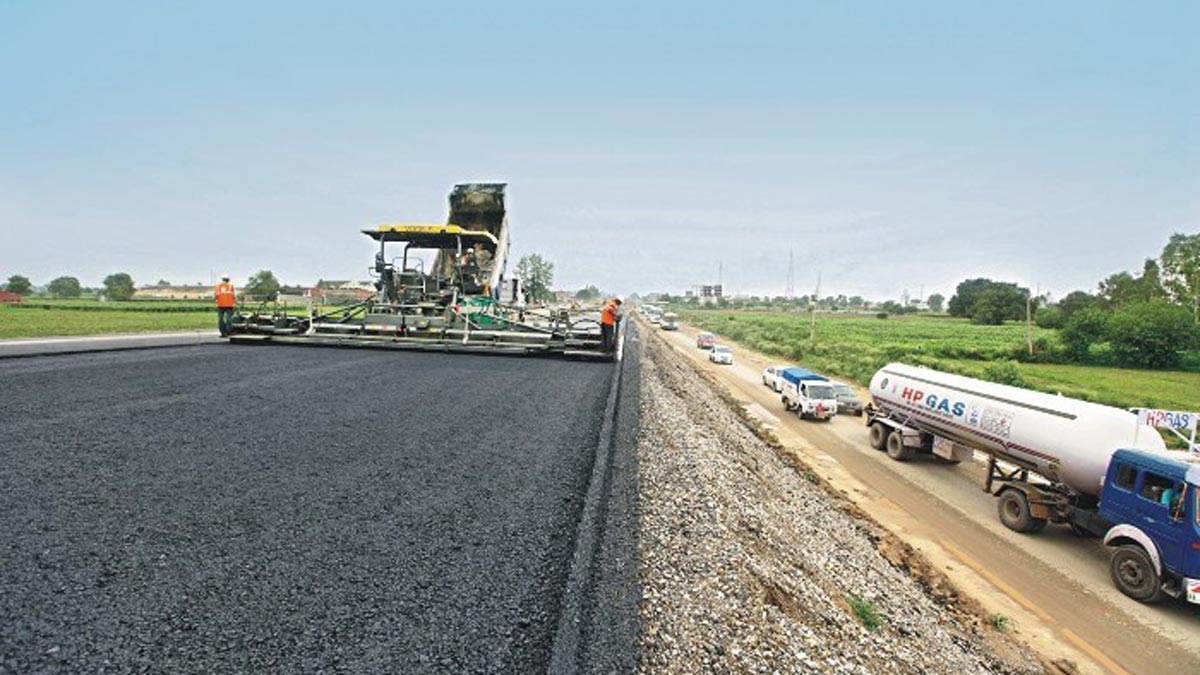- FG to Complete N16bn Road Projects in Kwara
The Federal Government has promised to complete three major road projects in Kwara State, estimated to cost a total of N16.1bn before end of May 2019.
The Deputy Director of Highways, North-Central, Federal Ministry of Power, Works and Housing, Mr. Bola Aganaba, stated this on Monday in Ilorin during the inspection of the projects.
Aganaba expressed satisfaction with the quality and progress of work done on the projects.
According to him, the projects are the N1.6bn expansion of Michael-Imoudu-Ganmo-Afon Junction in Ilorin; the construction of N3bn Afo-Aboto-Oyo State road; and the reconstruction of N11.5bn Ilorin-Bode-Saadu-Jebba Road.
The Chairman of the Nigerian Society of Engineers, Ilorin branch, Mr. Joseph Adebayo, and the Federal Controller of Works, Kwara State, Mr. Omotayo Awosanya, were part of the inspection.
Awosanya said the Federal Government had already released a substantial amount to contractors handling the projects.
He said that N400m including the mobilisation fee had been paid to the contractor handling the expansion of Michael Imodu-Ganmo-Afon Junction while N550m including a 15 per cent mobilization fee had been paid to the contractor of the Afo-Aboto-Oyo State road project.
Awosanya stated that N9bn had been paid to the contractor handling the Ilorin-Bode-Saadu-Jebba Road, adding that the project had reached above75 per cent completion.
He stated that the FG was committed to infrastructure upgrade across the country and the welfare of the residents.
He also said there were 10 currently ongoing federal projects in Kwara State.
Reacting to complaints from community members over alleged slow pace of work on the Michael Imodu-Ganmo-Afon Junction
road and the attendant traffic snarl, Awosanya said the ministry had impressed it on the contractor to ensure that the road was wet to reduce dust.
He urged the residents and other road users to bear the inconveniences, adding that the FG was committed to ensuring timely completion of the project.
He stated that the relocation of electric poles was hindering the speedy completion of the project, adding that the ministry had had talks with the Ibadan Electricity Distribution Company Plc on how to address the challenge.

 Forex3 weeks ago
Forex3 weeks ago


 Naira2 weeks ago
Naira2 weeks ago
 Billionaire Watch2 weeks ago
Billionaire Watch2 weeks ago




 Naira2 weeks ago
Naira2 weeks ago




 Naira2 weeks ago
Naira2 weeks ago




 Naira1 week ago
Naira1 week ago




 Naira4 weeks ago
Naira4 weeks ago




 Naira3 weeks ago
Naira3 weeks ago






















